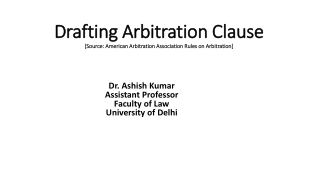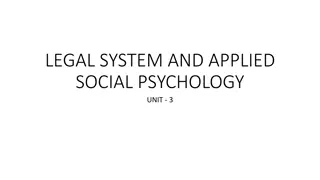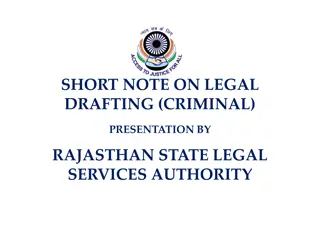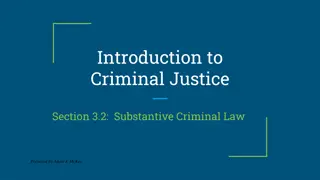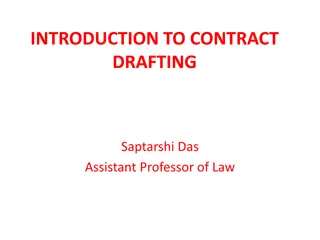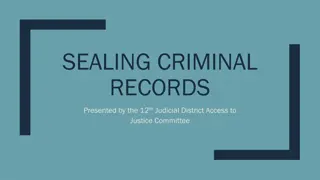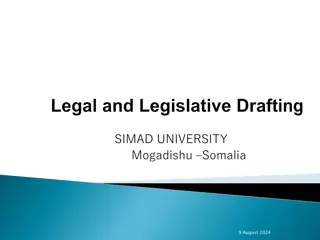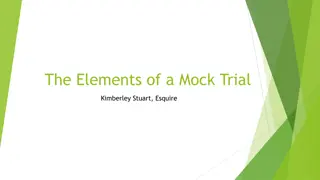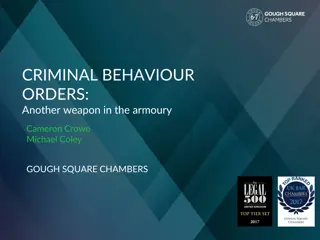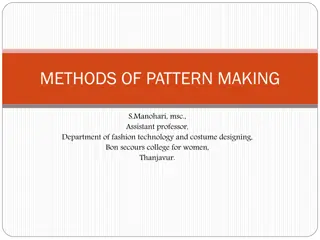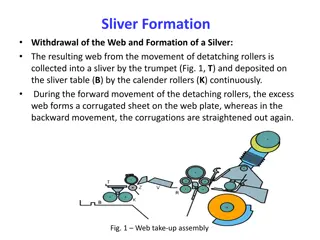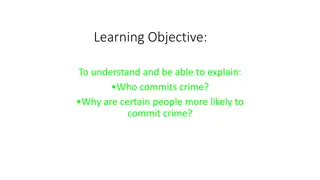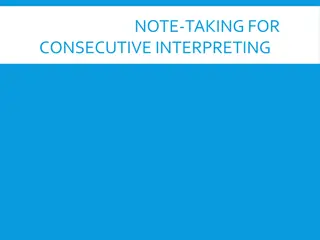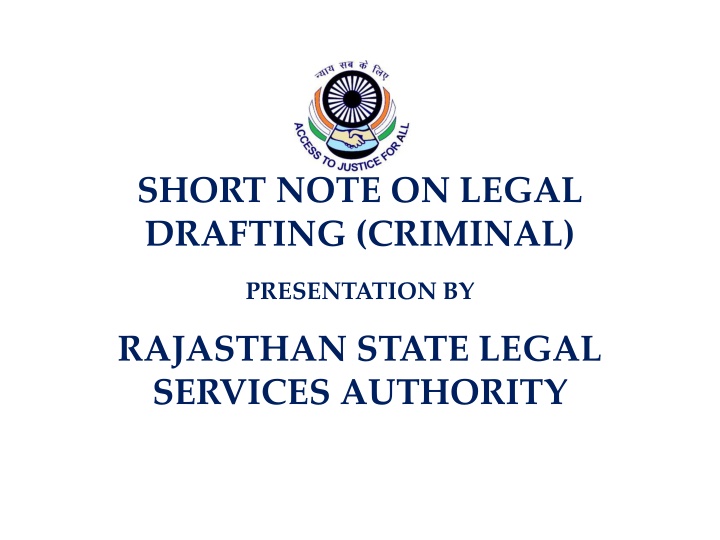
Legal Drafting in Criminal Law: Importance and Applications
Discover the significance of precise legal drafting in criminal law practice and explore various applications in trial and high courts. Gain insights into the specific types of court applications, appeals, and petitions commonly encountered in criminal cases.
Download Presentation

Please find below an Image/Link to download the presentation.
The content on the website is provided AS IS for your information and personal use only. It may not be sold, licensed, or shared on other websites without obtaining consent from the author. If you encounter any issues during the download, it is possible that the publisher has removed the file from their server.
You are allowed to download the files provided on this website for personal or commercial use, subject to the condition that they are used lawfully. All files are the property of their respective owners.
The content on the website is provided AS IS for your information and personal use only. It may not be sold, licensed, or shared on other websites without obtaining consent from the author.
E N D
Presentation Transcript
SHORT NOTE ON LEGAL DRAFTING (CRIMINAL) PRESENTATION BY RAJASTHAN STATE LEGAL SERVICES AUTHORITY
Short Note on Legal Drafting (Criminal) Legal Drafting On the criminal side the value of pleadings is often overlooked. Criminal Law is no less precise and technical than any other branch of law and as such of law and as such pleadings should be drafted carefully and concisely.
Trial Courts 1. Miscellaneous Applications a)Applications under Section 207 of the code of Criminal Procedure seeking copies of the documents filed along with the charge sheet. b)Exemption Applications under Sections 205/317 of the Code of Criminal Procedure. c)Applications for Superdari under Sections 451 & 457 of the Code of Criminal Procedure . d)Applications for Plea Bargaining under Section 265B of the Code of Criminal Procedure. e)Applications opposing remand and seeking bail and anticipatory bail. f) Application for Legal Interviews with clients in custody. g)Applications for compliance of provisions of the Jail Manual. 2. Appeals to the Sessions Court from an order of conviction and sentence passed by the Magistrate. 3. Revisions to the Sessions Court from an order passed by the Magistrate. 4. Drafting of complaints for which cognizance is taken under Section 190 (1)(a) of the Code of Criminal Procedure.
High Courts 1. Writs Habeas Corpus Mandamus Certiorari 2. Petitions under Section 482 of Code of Criminal Procedure 3. Revisions 4. Appeals 5. Bails a. Bail Applications under Sections 437 & 439 of the Code of Criminal Procedure. b. Anticipatory Bail Application under Section 438 of the Code of Criminal Procedure.

